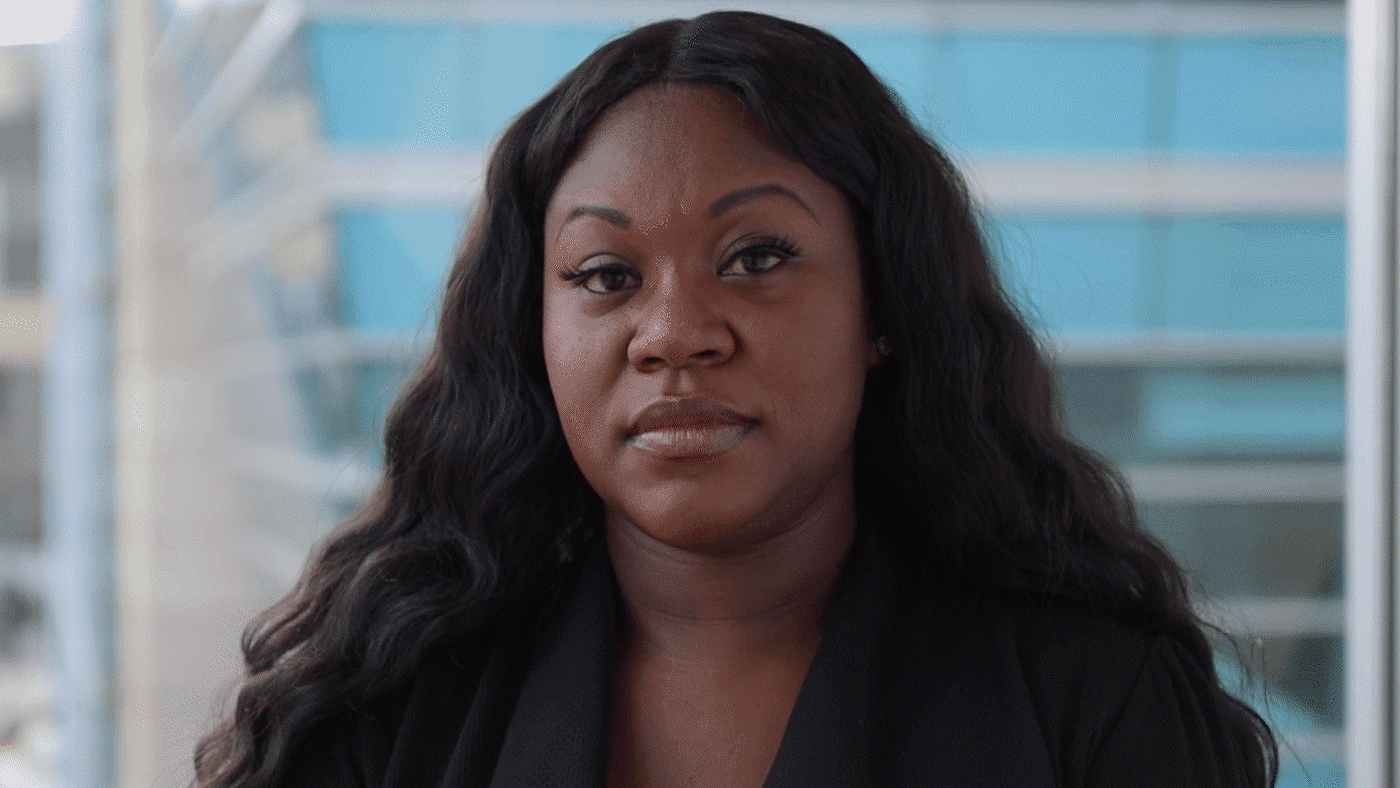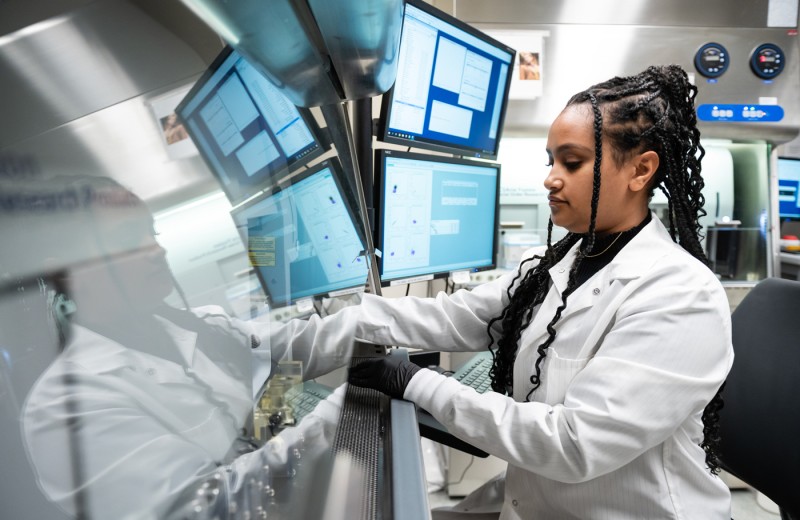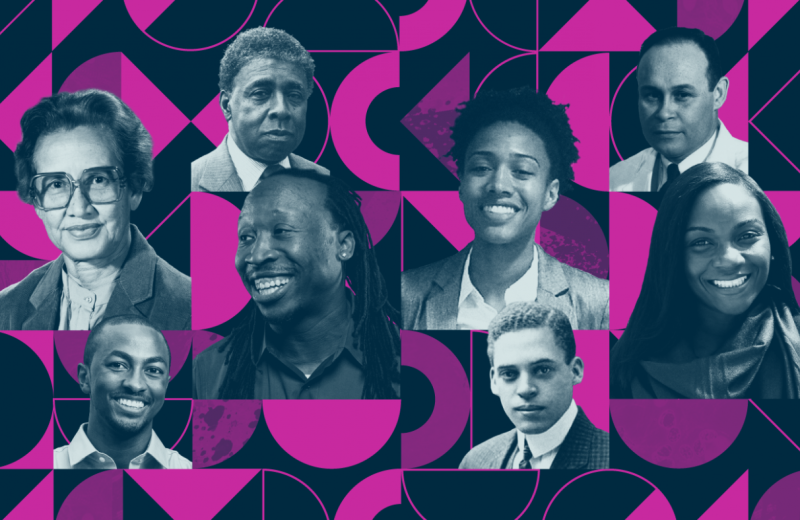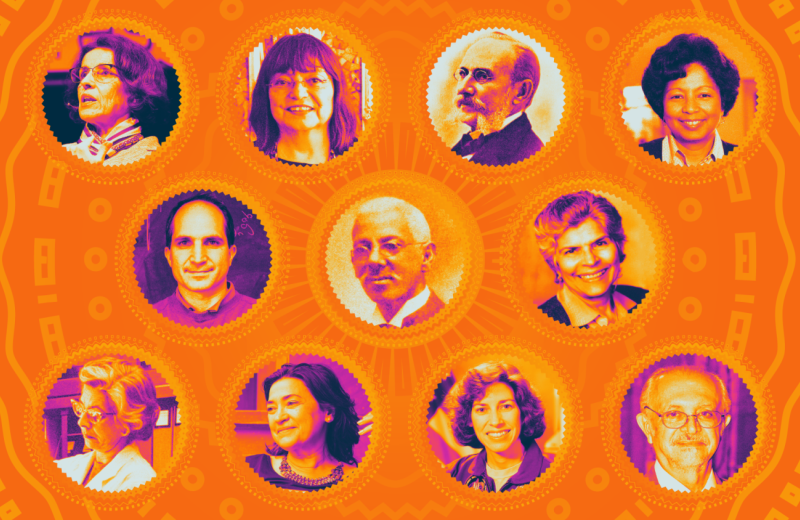Gladstone NOW: The Campaign Join Us on the Journey✕

Nicole Velasquez is a co-leader of Elevated Voices, Gladstone's community group dedicated to supporting people of color.
Nicole Velasquez (she/her) joined Gladstone after hearing rave reviews about the work environment from a close friend. She’s worked in a variety of industries including accounting, entertainment business management, and health care administration.
What brought you to Gladstone?
I was first introduced to Gladstone in 2011 when I participated in the Walk for Alzheimer’s with my best friend who was a Gladstone employee at the time. I remember how much she’s always had positive things to say about the work environment and the people, as well as the organization’s mission.
When I relocated back to the San Francisco Bay Area from New York City a few years ago, I was looking for an administrative position, specifically within an organization that was geared toward making a difference within the improvement of humanity, society, or the environment. I remembered Gladstone and took a chance at applying here and have been happy ever since.
What do you like about Gladstone?
What I like about Gladstone is the passion, the motivation, and the drive of every person who works here. From the scientists to administrators, everyone shares the same sense of purpose and mission.
I don’t have a scientific background, but with every person that I’ve come into contact with, every seminar that I’ve attended or helped organize, everyone has the foundation of wanting to make a difference. And that’s one of the primary reasons why I like Gladstone and why I feel Gladstone is a top-notch employer.
It’s clear that Gladstone values its most prized resource, which are the people.
Can you describe your role at Gladstone?
I initially started as an administrative assistant in the President’s Office.
Now, I’m currently the administrative program manager for Benoit Bruneau, the director of the Gladstone Institute of Cardiovascular Disease. In this role, I oversee the non-scientific and operational services and processes. This can range from floor restructuring projects to organizing institutional happy hours. I wear many hats.
How did you get involved with Gladstone’s community groups? What changes do you hope to see?
I’m currently a co-leader of Elevated Voices, the community group dedicated to supporting people of color at Gladstone. I’d also like to become more involved in the LGBTQ+ and Women’s Initiative community groups. I’d love to see increased participation and support from Gladstonians within all community groups, which would help each of the groups’ initiatives have a greater impact.
What do you do when you are not working?
When I’m not at a park, aquarium, museum, or reenacting Spiderman movies or episodes of PJ Masks with my 4-year-old, you can find me in a dance class (various forms), creating and indulging in spoken word, and spending quality time with family.
What is your hidden talent?
At the age of 6, my grandmother taught me how to crochet! We would bond over making doilies, beanies, and blankets.
If you could meet any scientist from any point in time, who would it be and why?
George Otto Gey was the cell biologist at Johns Hopkins Hospital who did extensive work propagating the HeLa cells from Henrietta Lack’s cervical tumor. Henrietta Lacks was an African American woman whose cervical cancer cells were the source of the HeLa cell line, which contributed to various important scientific advances. I highly recommend reading “The Immortal Life of Henrietta Lacks” by Rebecca Skoots (which was also made into a film).
February is Black History Month. Why is this month important to you?
Black History Month brings cultural awareness to our people. It’s a time to shed light on the contributions of African Americans, not only in this country but the world.
It’s important to me because it’s a time designated to pay homage to those who’ve contributed to the progression of Blacks as a whole. In order to know where we are going, we have to revere where we came from.
Want to Join the Team?
Our people are our most important asset. We offer a wide array of career opportunities both in our administrative offices and in our labs.
Explore CareersProfessional Journeys of Black Gladstonians
Professional Journeys of Black Gladstonians
Get to know our Gladstone community during Black History Month
Profile Elevated Voices DiversityHighlighting Black Scientists from Past to Present
Highlighting Black Scientists from Past to Present
Featuring Black scientists throughout history
Elevated Voices DiversitySpotlighting Latinx Scientists
Spotlighting Latinx Scientists
In honor of Latinx Heritage Month, learn more about these game-changing Latinx scientists throughout history
Communications Elevated Voices Diversity



